Our services
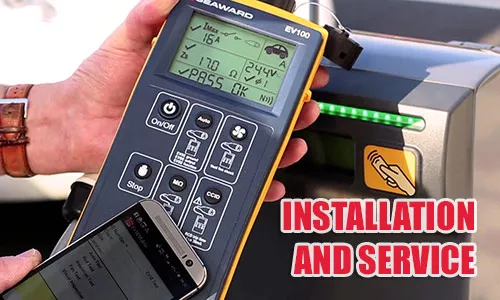
Installation and service from the local licensed contractor.
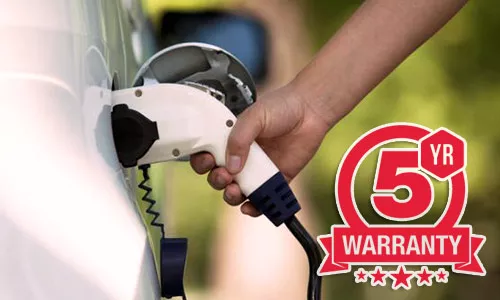
Warranty up to 5 years for installation and installed equipment.

Sales of chargers for transport with worldwide delivery, retail and wholesale.
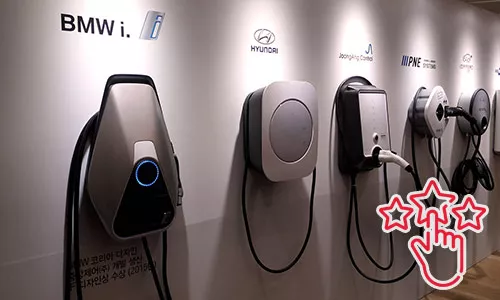
Recommendations for choosing EVSE, based on our own evaluations and customer experience.
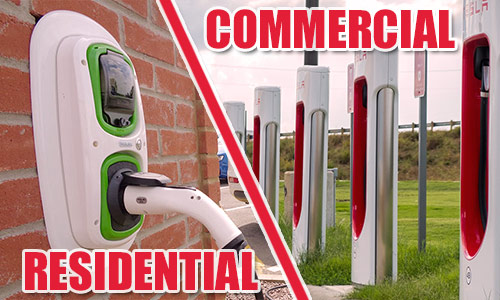
For private clients and the corporate sector.
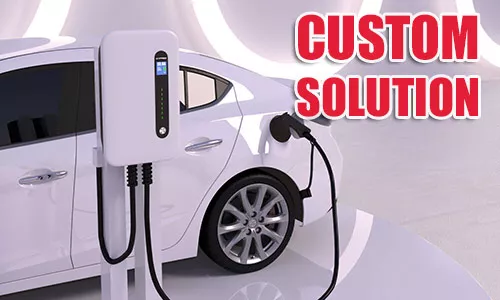
Designed by engineers for custom EV charging solutions.
Residential EV Charging Station Installation
In Broward County, Florida, and the surrounding areas, EV Adept provides professional EV charger installation and maintenance. It is simple and inexpensive to install an EV home charger for your car.
EV Adept can install electric vehicle chargers that work with all makes and models of electric cars, not to mention surge protectors for EV chargers, too. There’s no need to worry if you want to upgrade your electrical panel for Level 2 EVSE; our team can help with that as well. More details…
Fill out our contact form and discover the best EV charger for your needs.
Best Sellers
JuiceBox
Manufacturer Part Number 2JBO401RNA-PJWX-222

- Outlet: NEMA 14-50 (40A)
- Voltage: 220V -240V
- Connector: SAE J1772
- Cable (ft): 25
- Max output: 10kW
- Wi-Fi: yes
Customer Reviews: 493
MSRP $619
Installation is optional!
An outlet and an extension cord
are enough for the first time.
JuiceBox • Hardware
Manufacturer Part Number 2JBO401RNA-PJWX-222
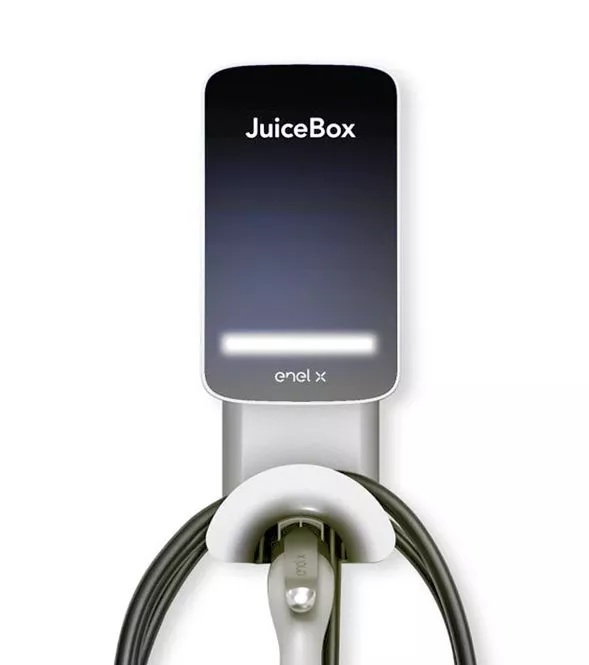
- Outlet: Hardware (32A)
- Voltage: 220V -240V
- Connector: SAE J1772
- Cable (ft): 25
- Max output: 7.7kW
- Wi-Fi: yes
Customer Reviews: 493
MSRP $600
Installation is not included!
Lectron
Manufacturer Part Number EVCharge10-30
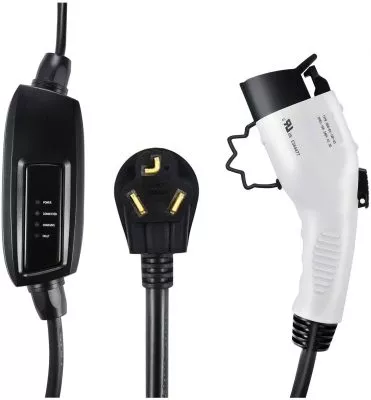
- Outlet: NEMA 10-30 (16A)
- Voltage: 220V -240V
- Connector: SAE J1772
- Cable (ft): 21
- Max output: 3.86kW
- Wi-Fi: no
Customer Reviews: 144
MSRP $200
Installation is optional!
An outlet and an extension cord
are enough for the first time.
MUSTART
Manufacturer Part Number MT-40A-N1450
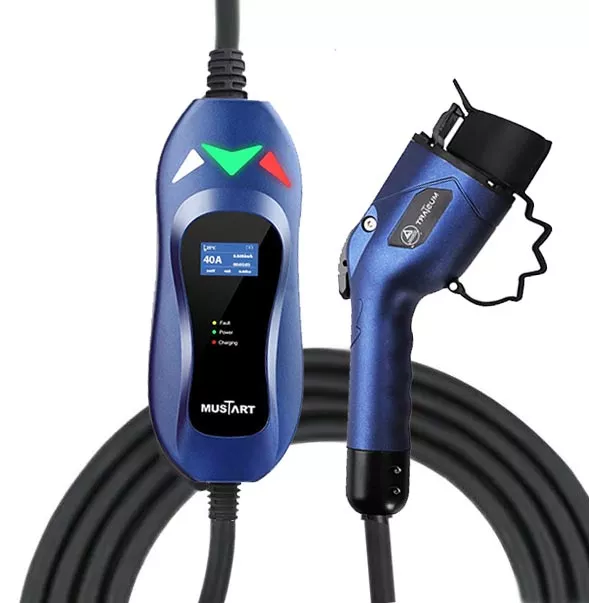
- Outlet: NEMA 14-50 (40A)
- Voltage: 220V -240V
- Connector: SAE J1772
- Cable (ft): 25
- Max output: 9.6kW
- Wi-Fi: no
Customer Reviews: 293
MSRP $359
Installation is optional!
An outlet and an extension cord
are enough for the first time.
Grizzl-E
Manufacturer Part Number GR
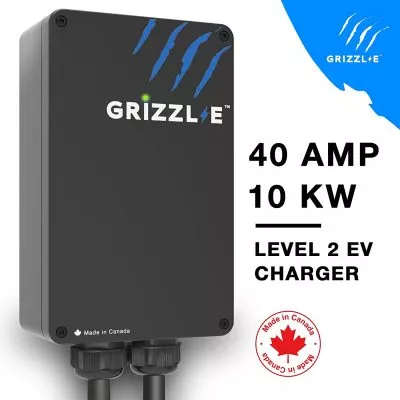
- Outlet: NEMA 14-50 (40A)
- Voltage: 220V -240V
- Connector: SAE J1772
- Cable (ft): 24
- Max output: 9.6kW
- Wi-Fi: no
Customer Reviews: 330
MSRP $459
Installation is optional!
An outlet and an extension cord
are enough for the first time.
BougeRV
Manufacturer Part Number IRV047N
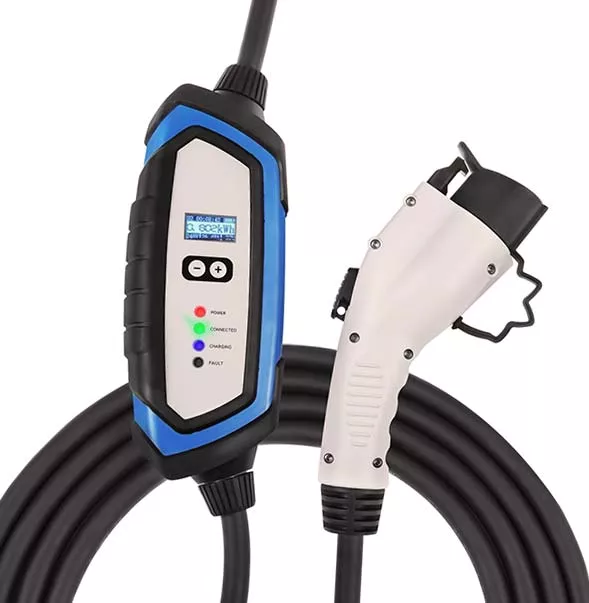
- Outlet: NEMA 14-50 (32A)
- Voltage: 220V -240V
- Connector: SAE J1772
- Cable (ft): 25
- Max output: 7.2kW
- Wi-Fi: no
Customer Reviews: 108
MSRP $330
Installation is optional!
An outlet and an extension cord
are enough for the first time.
How does the equipment evaluation process take place?
In short, we check the stable output of the maximum power, the external operating conditions (like temperature), the quality of the connector and cable materials, and the stability of the external interfaces.
So how do we know if a charger is good for you or not? In addition to invaluable experience, rigorous testing is required to verify whether a device is worth the money.
First. Maximum power testing is an important criterion that is often not met. The maximum power should peak but remain constant. A lab test is optimal, but in a home environment, you can use the data from the EV panel when charging. The ideal for L2 devices is 19.4 kw which corresponds to 80 amps.
Second. Operating mode conditions. Some devices are better suited for hot Florida, others for cool Montana. EV Adept selects devices with a wide range of –40°F to + 185°F (–40°C to + 85°C).
Third. The connector and cable materials are not only durable but also safe. We pay attention to the certification of materials, cable flexibility, and the early warning signs of potential damage.
For selection, check out the catalog. Additionally, we take into account customer feedback and experience of certified contractors. We look at the compatibility features of most EVs when choosing and the power of typical chargers on board an EV.
FAQ
What states do you work in?
Installation available in South Florida (Broward County and nearby counties) from the local licensed contractor. The license details are here.
We sell chargers and adapters with worldwide delivery.
How to install an electric car charging station at home?
Charging stations from ChargePoint, KEBA, ABL, Schneider Electric, Tesla Wall Connector and others are suitable for home installation. The cost ranges $500–$2000. However, it will be faster and safer to entrust the installation process to a licensed electrician. You can choose and purchase a suitable charging station on our website.
Do I have to use dedicated charging stations for EV?
The vehicle can be charged from a standard 120V outlet. However, a dedicated EV charging station has advantages in terms of speed and safety.
Is there a hardware warranty?
Yes, up to a 5–year warranty for equipment sold by EV Adept. And often there is a manufacturer’s warranty for the equipment we recommend, and free returns.
How much does it cost to install an electric vehicle charging station?
The average cost to install a standard L2 EV charging station is $450–$1100. The average cost is $775. The cost of the stations themselves ranges from $350–$2000, depending on which Level 1 or 2 you choose.
How do I charge an EV?
Typically, an electric car kit contains a cable that connects to the car at one end. The other end of the cable can be connected by changing its adapter to a different socket:
- both to 120V (USA)/240V (USA & Europe);
- to three-phase (for Europe);
- to a charging station outlet (for example, with direct current).
Where to charge an electric car on the road?
The number of public charging stations is ever-increasing. The PlugShare service has the most complete base. Owners and users of chargers can independently add new points to the map.
What type of equipment is right for me?
For private clients of EV Adept in the USA, the most common equipment is Level 2, with an SAE J1772 (Type 1) connector. Check out other options and how they compare.
Do I need to install hardware?
Private EV users often need to charge EVs at home. If you’ve got a long way to drive, then L2 high–speed charging may be needed. Sometimes people just buy a second set of L1s, which is permanently installed in their garage.
Which charger do I need for fast charging?
Level 1 — often already in the car. Its power is 3–5 miles of range per charge hour. Level 2 is a separate device. Its power is 18–28 miles of range per charge hour.
What are the differences between Level 1, Level 2, Level 3?
In short, the difference is in the charging speed up to 100% of the battery capacity. Level 1 – Slow, Level 2 – Medium, Level 3 – Highest Power, and Defined Charge Rate.
Level 1 — For the USA, 16A is limited to 120V and the maximum you can expect is 1.9kW of power (for Europe, 3.8kW). For an EV with a 75kWh battery, this means waiting about 40 hours before being fully charged in the US. Using this, you can charge an electric car without special infrastructure simply by plugging the adapter into an AC outlet. Power is 3–5 miles of range per charge hour.
Level 2 — up to 9.6kW peak power (240V, 40A) AC. But it will require special installation in the USA, as you would with an electric stove. In the home version, the price of chargers starts at $500, for the street — from $1000. The speed is higher. Its power is 18–28 miles of range per charge hour.
Level 3 or Direct Current Fast Chargers — charging with powerful direct current up to 350kW. Charges up to 80% in 20–30 minutes. Its power is ~100 miles of range per charge hour. DCFCs are located in commercial or industrial locations.
What are the differences between Level 2 devices?
For private use, the price is influenced by the
- Available current
- Type of connector (TYPE–1 J1772 is suitable in the US)
- Number of ports (connectors)
- Cable length
- Communication (Wi–Fi, 5G, Ethernet, LAN, RS–485)
How long can you drive in a fully charged car?
The agency’s new MPG sticker for an EV has four key elements:
- kilowatt-hours per 100 miles (kWh/100M);
- pg-equivalent (MPGe);
- annual electricity cost;
- cruising range.
For example, a Tesla model X Long Range Plus will have approximately 351 miles for mixed highway/city driving.
How is the battery capacity of an EV measured?
The battery capacity of any electric vehicle is measured in kilowatt–hours (kWh). For example, Tesla Model X P100D has a corresponding figure of 100kWh. That is, its battery is capable of delivering power of 100kW for one hour or 1kW for one hundred hours.
How much does it cost to charge an electric car?
In the case of charging at home, the cost depends on the cost of electricity ($ per kW). On average, for the United States, one kilowatt of electricity costs from 11 to 21 pence. That is, charging a Tesla Model X 100D will cost from about $15.29 (i.e., with a typical MPG).
The values are approximate. In general, the formula looks like this: Price of one kW ($)·Battery capacity (kWh) = Charging price ($). Use the EV cost charging calculator for easy calculation.
If the EV is charged at public stations, the cost depends on the specific charging rates. Sometimes, the price for one kilowatt is several cents higher than home charging. Sometimes public charging is free.
How to calculate charging time for an EV?
Try the EV charging time calculator to estimate the waiting time. The battery of an EV with a capacity of 75 kWh will be charged:
- from a standard household European outlet in ≈21 hours (voltage 240V and current strength 16A);
- from Tesla Wall Connector in ≈4 hours (the time depends on the network capabilities and the availability of the Dual Charger option in the car);
- from charging stations with a current power of 22kW for ≈3 hours (KEBA, ABL, Schneider Electric);
- from Supercharger or ChaDeMo in ≈1.5 hours.
Take the Tesla Model S 75D battery as an example, which has a capacity of 75 kWh. To fully charge it within an hour, it is necessary to supply 75 kW of power to charge it within five hours — 15 kW. The maximum power of the charger can be calculated using the formula Volts·Amperes = Watts.
In reality, the charging speed may be uneven, and the time may vary, but in general the charging time is calculated using the formula Battery capacity (kWh)/Charger power (kW) = Charging time (h).
What is a Tesla Supercharger and how to use it?
A network of charging stations created and maintained by Tesla, Inc. specifically for charging Tesla electric vehicles. The network includes more than 25 thousand stations.
Specifications:
- voltage 480V;
- DC;
- power output per EV is 120—250kW.
Fully 120kW charging a Tesla Model S 90D (90 kWh battery) from zero takes 75 minutes, 55% charging (180 miles of travel) in just 30 minutes.
Are there any differences between charging European and American Teslas?
Yes, the American Tesla does not support charging from a three-phase outlet. An inlet type is different (e.g. CCS Combo in Europe).
We sell and install charging stations for EV
- For fast charging. Adapted to the US and Europe markets;
- For public use. All stations are guaranteed;
- For home and office. We will install it where convenient.